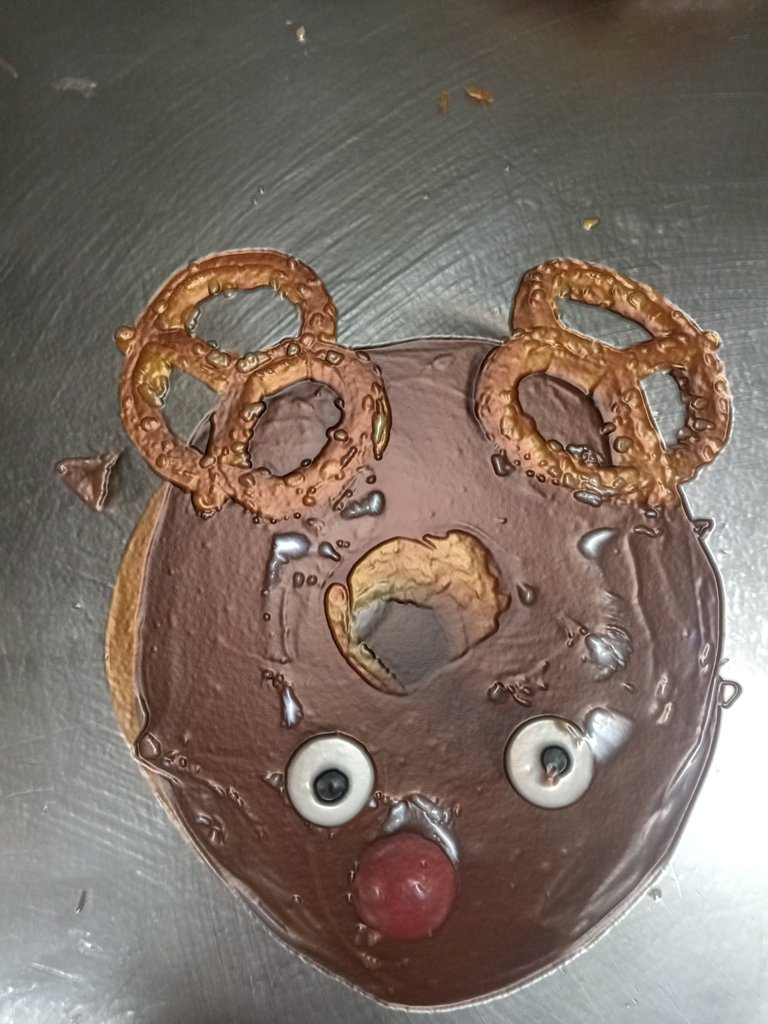Donuts And Dissent

Chapter 1: The Night Shift
Igor, the Baker from Russia, stood behind the counter of the bustling donut shop in downtown Toronto. With his thick accent and limited English vocabulary, he relied on his three trusty words: yes, no, and ooh. Despite the language barrier, Igor's warm smile and delicious pastries made him a beloved figure in the community.
Alex, a fellow employee from Greece, struggled with English. His broken sentences and heavy accent made it difficult for others to understand him. However, Alex had a keen awareness of the world around him, particularly the concept of the New World Order. He often shared his theories with anyone who would listen, though only about ten percent of his words were comprehensible.
John, the anarchist, was a regular fixture at the donut shop. He believed fervently in the idea that taxation is theft, and he never missed an opportunity to voice his opinion. His catchphrases echoed through the shop, much to the amusement of the customers and the annoyance of the management.
Chapter 2: The Donut Shop's Quirks
The donut shop had its fair share of quirks. Homeless individuals sought refuge there, finding solace in the warmth and the occasional free treat. Customers often asked what was happening, perplexed by the sight of people sleeping amidst the aroma of freshly baked goods. John, ever the provocateur, would respond with a mischievous grin, "It's a bed and breakfast, my friend!"
Outside the shop, a peculiar character stood, blocking the entrance and punching the air. His presence was a mystery to many, but he seemed harmless enough. The regulars had grown accustomed to his antics, and he became a part of the nightly routine.
Chapter 3: The Comedy Unfolds
As the night shift continued, the donut shop became a hub of laughter, camaraderie, and unexpected encounters. Igor's limited vocabulary often led to hilarious misunderstandings, but his warm nature and delicious pastries bridged the gap between languages.
Alex's broken English, combined with his conspiracy theories, provided a constant source of amusement. His attempts to explain the New World Order left everyone scratching their heads, but his enthusiasm was infectious.
John's rebellious spirit and catchphrases about taxation being theft never failed to entertain. His bold statements sparked lively debates among the customers, creating an atmosphere of intellectual stimulation amidst the sugary delights.
Chapter 4: The Language of Laughter
In this dialogue-driven novel, the language of laughter became the common thread that bound the characters together. Despite their differences and language barriers, Igor, Alex, and John found solace in their shared experiences and the joy they brought to others.
Through their nightly encounters, the donut shop became a microcosm of diversity, acceptance, and the power of human connection. The homeless found temporary respite, customers found a haven of laughter, and the characters themselves discovered a sense of belonging in the most unexpected of places.
Epilogue: The Legacy of Laughter
As the COVID era dawned, the donut shop faced uncertain times. The homeless population dwindled, and the bustling atmosphere gave way to a more somber reality. However, the memories of Igor, Alex, and John's comedic escapades lived on, reminding everyone of the power of laughter and the importance of human connection.
In the end, Doughnuts and Dissent was not just a story of a baker, a Greek with broken English, and an anarchist. It was a testament to the resilience of the human spirit, the beauty of diversity, and the transformative power of laughter in even the most challenging of times.
I wrote this short story novel thru an ai app